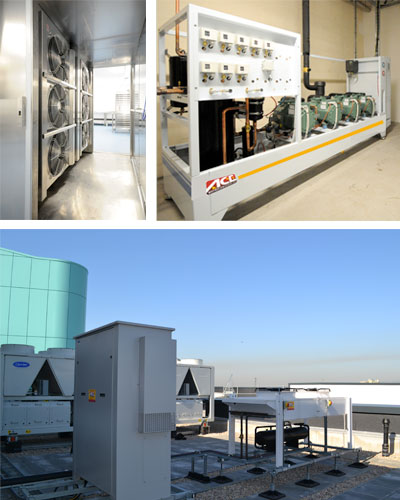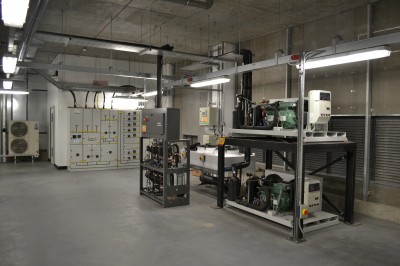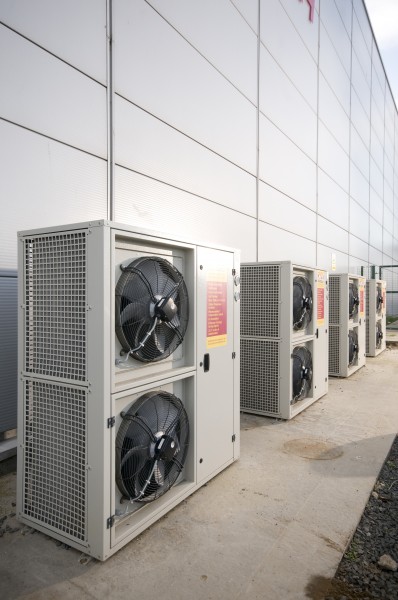Energy efficiency is at the heart of everything we do here at ACE Refrigeration, with a focus on increasing energy efficiency and reducing operating costs.
For some organisations, refrigeration costs can represent more than 50 % of their energy bill, and 20 % of that can be wastage.
A modern and energy-efficient refrigeration system will help save you money; we know where energy savings can be made and how to get cost-effective and efficient systems up and running in your business.
Our in-house design team also offer indemnified designs with a focus on energy savings of up to 25% over traditional applications, incorporating temperature monitoring systems.
Replacing tired and inefficient equipment can have a major benefit on your bottom line – some of our recent installations have had a payback period of less than 2 years based on the energy savings received; some customers have saved up to 25% off their energy bills.
Also for some of our customers in the UK, we have been able to help secure substantial grant funding for the replacement and renewal of outdated plant.
Minimising power input is at the core of our proposals; the following elements typically contribute to our overall solution:
Floating Head Pressure – Conventional refrigeration systems are designed to maintain a condensing temperature of approximately 40’C, this condensing temperature is selected based on an ambient of 30’C. If the condensing temperature is allowed to float 10’C above ambient temperature the running costs are greatly reduced. Extracts from the compressor manufacturer software are attached to demonstrate this.
Electronic Expansion Valves – Mechanical expansion valves require a minimum 9 bar differential over the valve to operate effectively were electronic valves only require a 4 bar differential. These valves allow the floating head pressure control concept to operate efficiently.
Multi-Compressor Packs – By using packs with multiple compressors the cooling requirements for all rooms are combined which results in a greatly reduced power input. With single compressor systems there are no means to offload compressor capacity.
Cyclic Fan Control – With long term storage application once the product is reduced in temperature and the door is closed (in particular overnight) the only heat source is the motor heat generated by the evaporator fan motors, this motor heat causes the temperature to rise and the cooling to energise. Our proposal is based on cycling the fans off when the room is at temperature to prevent this heat build up. To prevent any product hot spots the fans are re-energised after one hour to operate for five minutes.
Product Probe Control – Conventional controls start and stop the cooling process as dictated by the air temperature. The cooling process is frequently operated prematurely due to temporary hot air being drawn into the room when the door is opened. If there door was closed and the cooling was not started the heat energy stored within the thermal mass of the stored product would cause the room temperature to drop back to an acceptable level. By using a simulated product probe the cooling process is only activated when dictated by the stored product, reducing the compressor operating times.
Adaptive Defrost – Conventional logic has evaporators defrosting every six hours for thirty minutes. Our proposal is based on the evaporator controller measuring the performance of the defrost cycle, should a defrost cycle achieve the required termination temperature within 10 minutes the next scheduled defrost will be skipped.


























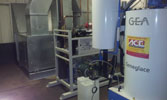
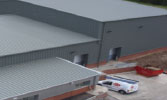
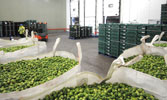

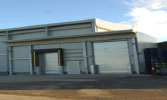

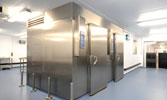

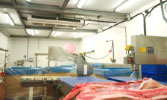
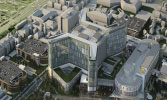
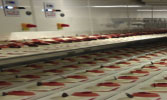
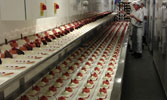
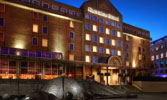
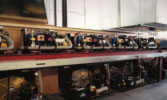
 Go Back
Go Back